01:13
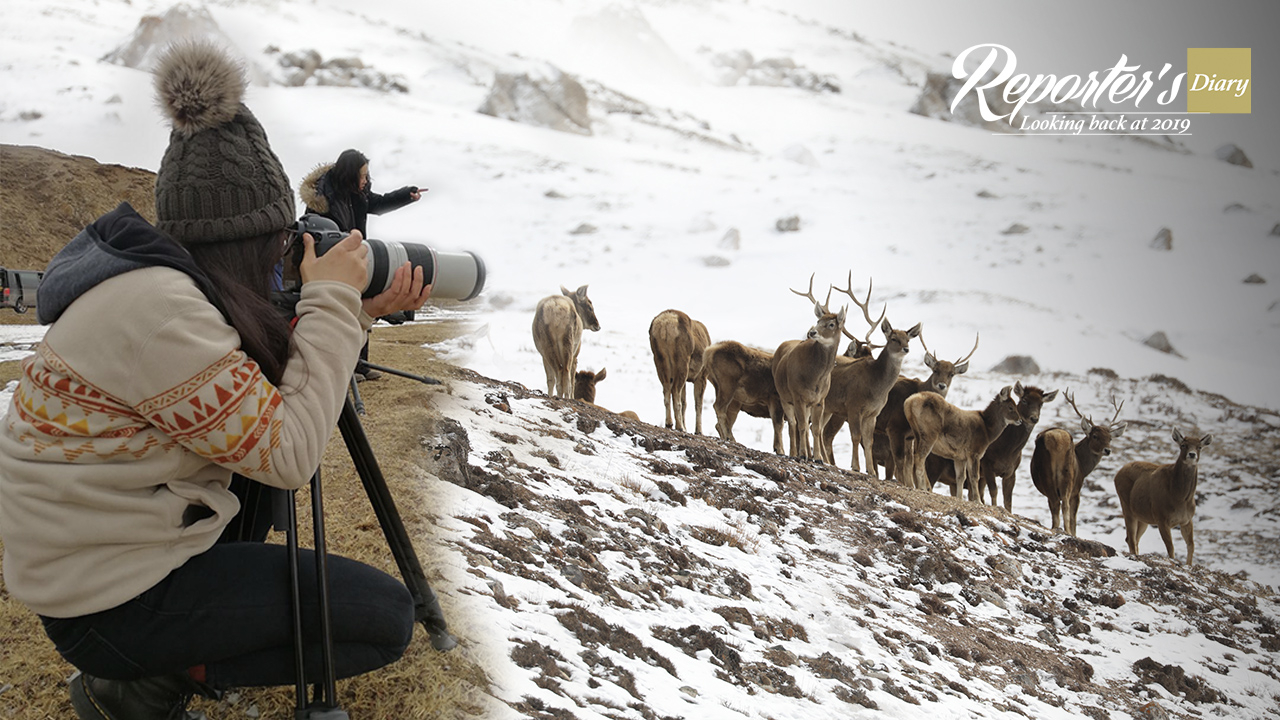
One of our cameramen was sent back to Beijing because of acute mountain sickness. Hundreds of herbivores or grass-fed animals died of cold and starvation due to the temperature at the area. This was my first time experiencing the harsh and hostile side of Mother Nature.
My film crew and I were in Yushu Tibetan Autonomous Prefecture in northwest China's Qinghai Province to film how a snowstorm at the beginning of 2019 had bonded humans and wildlife together. The weather and environment were staggering. With an elevation of more than 4,500 meters, the air was low in oxygen, the snow was as deep as 45 centimeters and the temperature dropped to minus 15 degrees Celsius.
Doing nature stories is very different than reporting on politics or culture. We face the power of nature directly. A furious snowstorm, a severe heatwave or a primeval jungle with unpredictable wildlife, are just examples.
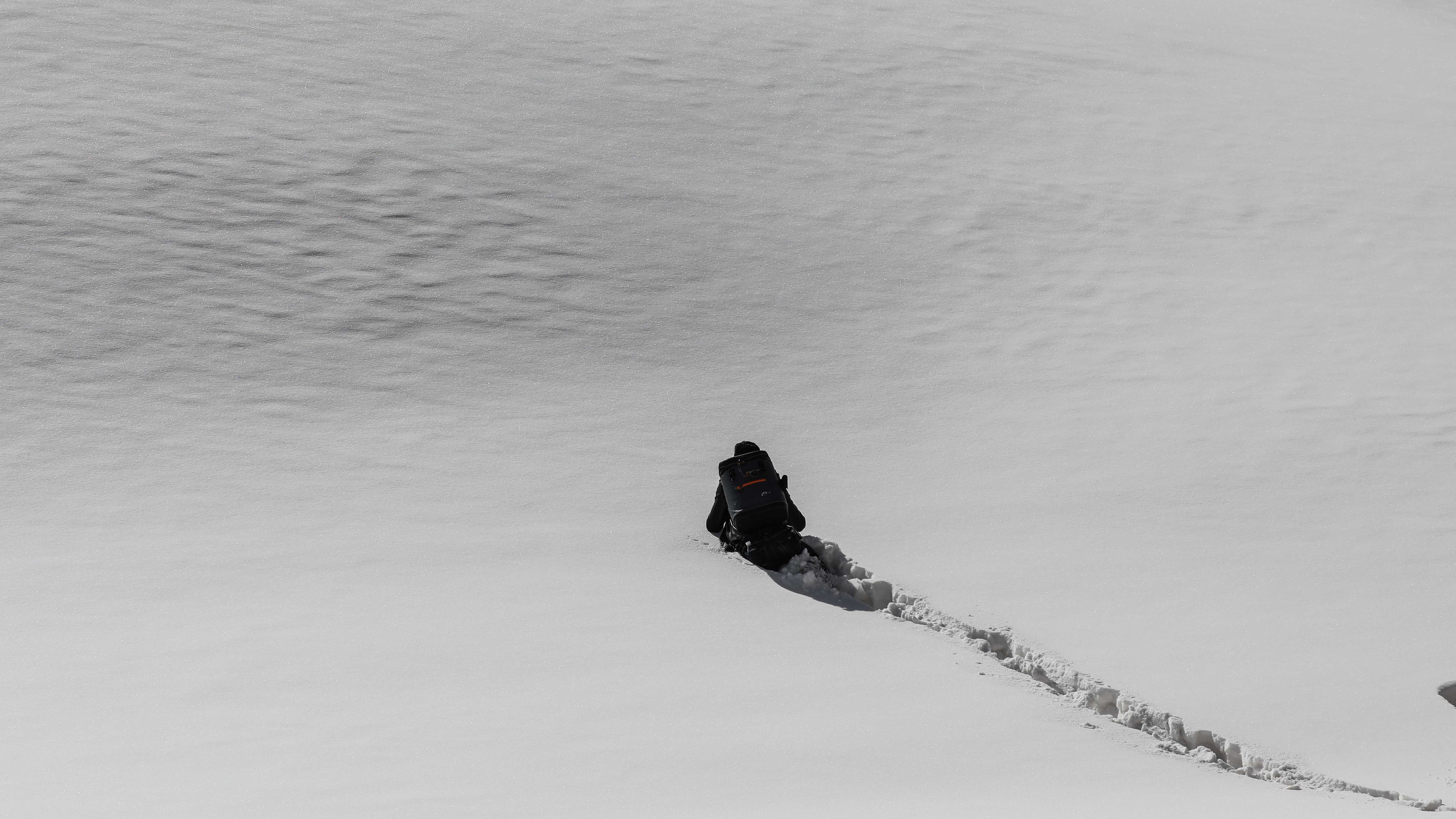
Heavy snow, equipment and the high altitude put more stress on our bodies. /CGTN Photo
Heavy snow, equipment and the high altitude put more stress on our bodies. /CGTN Photo
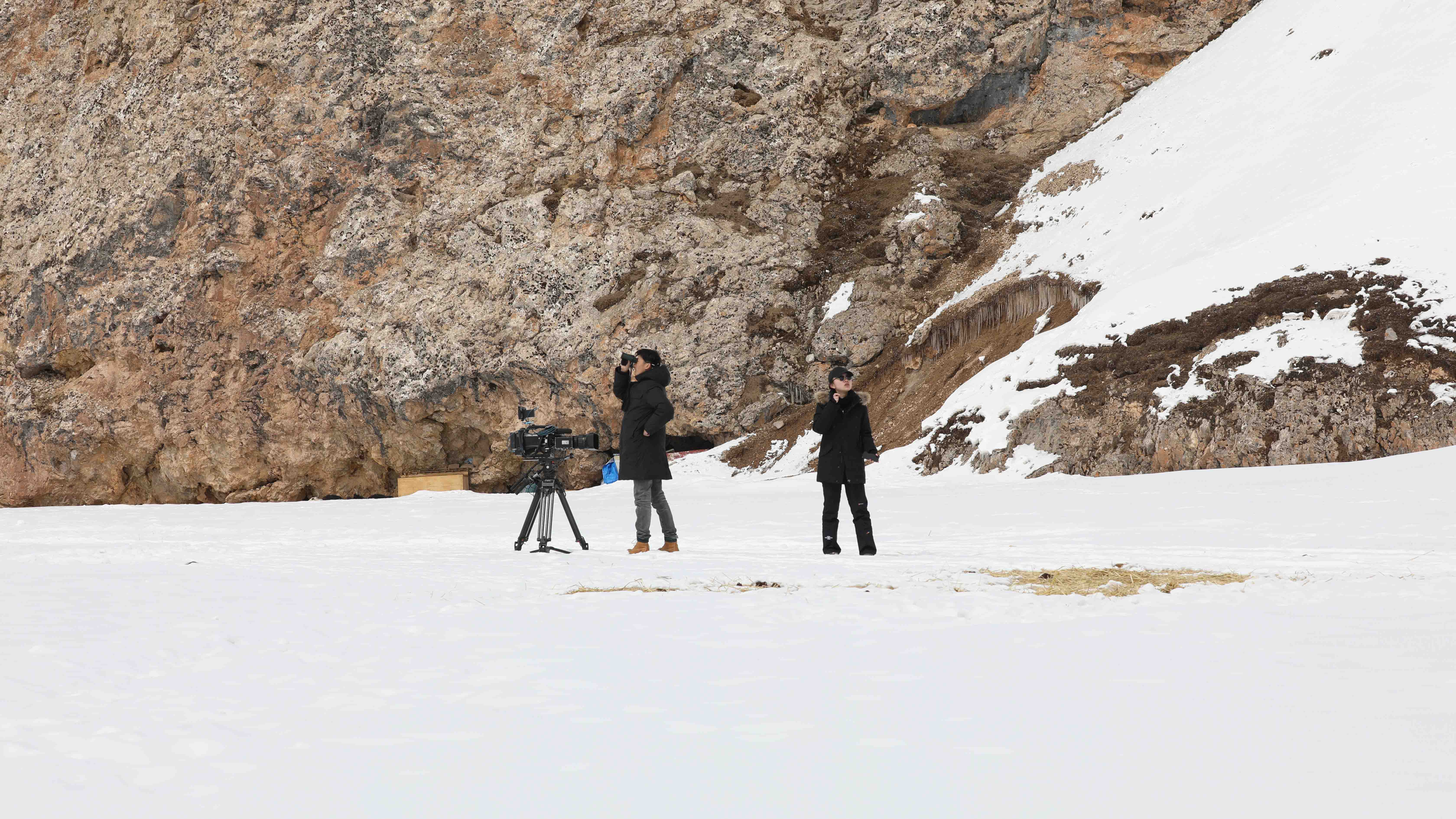
Cameraman Meng Fanke (L) and director Li Yunqi (R) look for animals in a valley. /CGTN Photo
Cameraman Meng Fanke (L) and director Li Yunqi (R) look for animals in a valley. /CGTN Photo
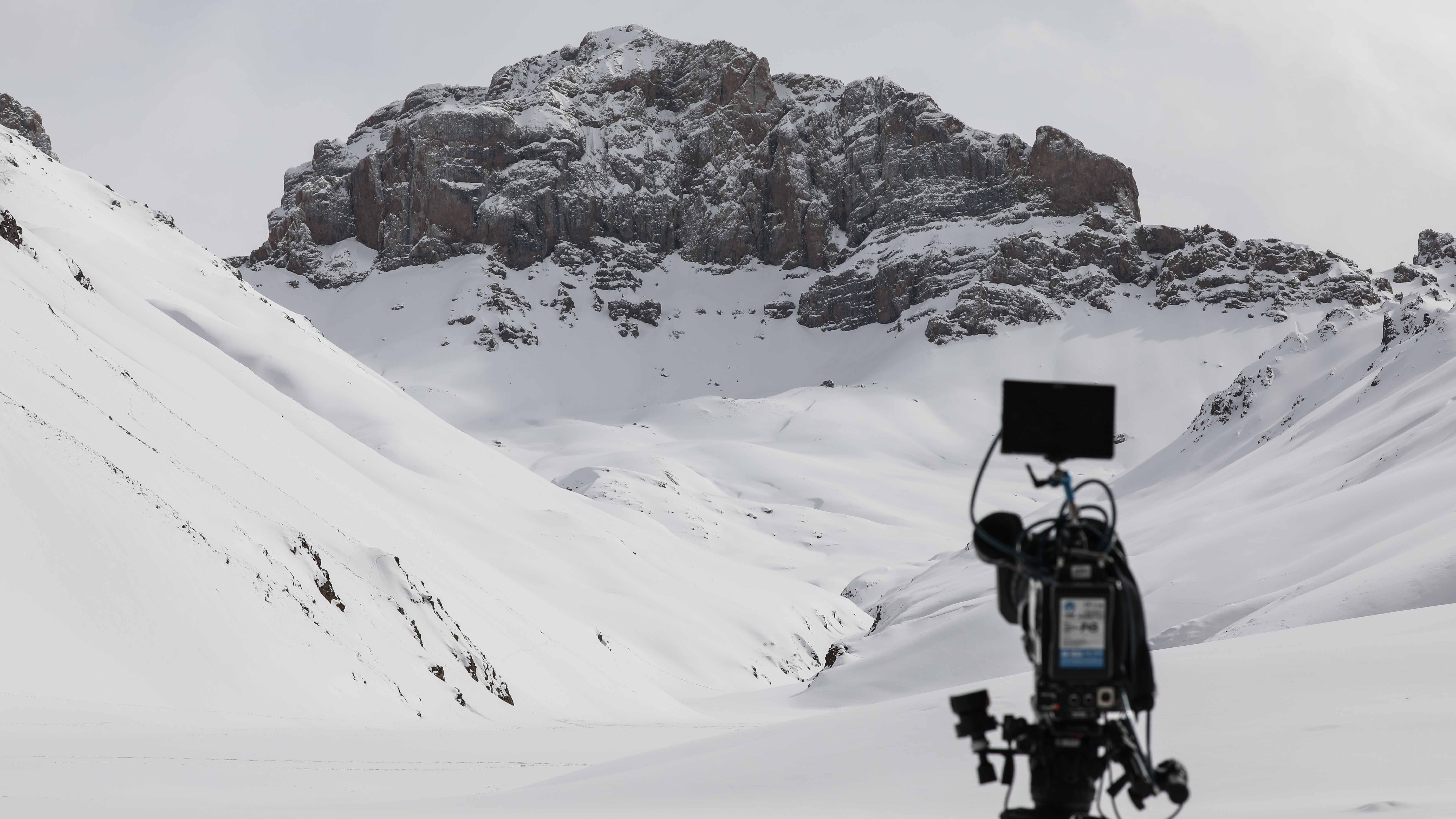
Filming a mountain in the valley. According to our local Tibetan guide, this mountain is sacred. /CGTN Photo
Filming a mountain in the valley. According to our local Tibetan guide, this mountain is sacred. /CGTN Photo
While we were searching for animals in a valley in the Sanjiangyuan area, the heavy snow made animal footprints easy to track. However, after walking for a few hours with heavy equipment, we found nothing but snow.
There was no other sound but our breathing in that massive frozen world. I felt I was in the middle of nowhere, a bit desperate and disappointing.
Luckily, on our way back, we spotted a few blue sheep grazing on a lofty cliff where locals had some fodder.
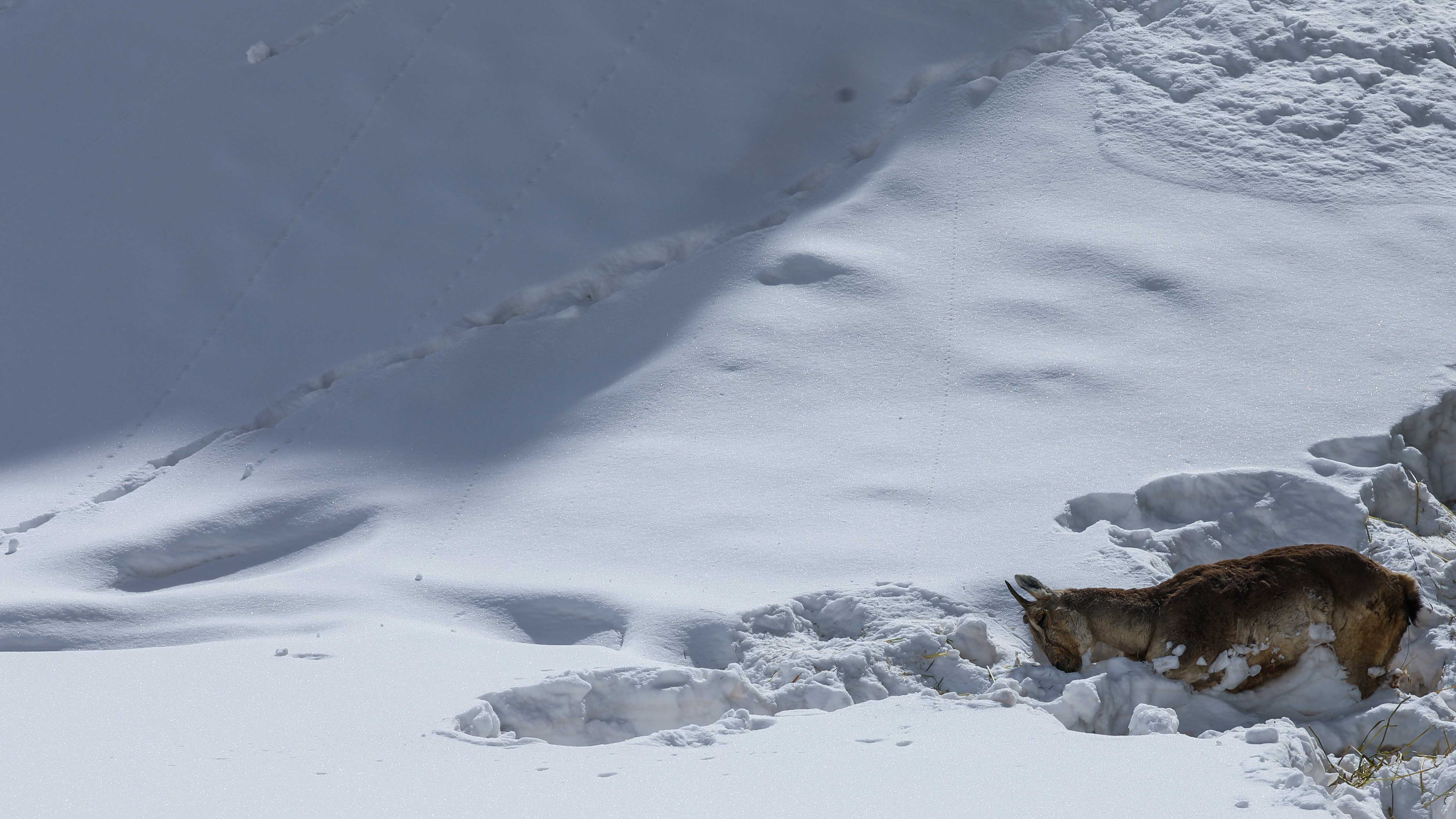
The carcass of a blue sheep that perished in the cold. /CGTN Photo
The carcass of a blue sheep that perished in the cold. /CGTN Photo
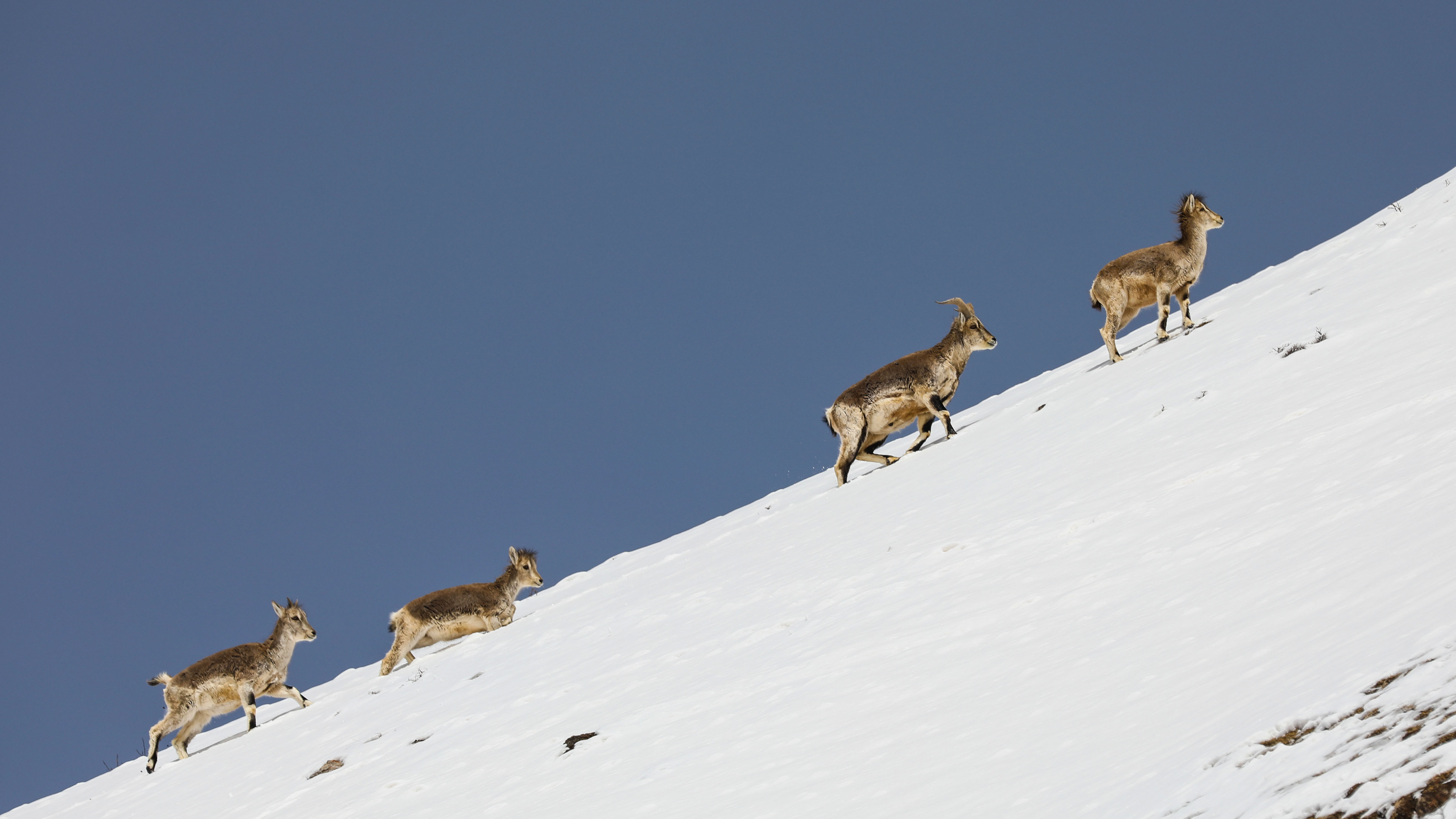
Herbivores or grass-fed animals find it's hard to forage in the snow. /CGTN Photo
Herbivores or grass-fed animals find it's hard to forage in the snow. /CGTN Photo
On the Qinghai-Tibet Plateau, human beings and wildlife are closely connected by their traditional way of living. Due to the severe unrelenting snow, many locals have volunteered to send fodder to the herbivores in the wild to help them get through the long winter.
Until today, filming Pema crossing a fast-moving river in ice and snow remains a shock to me. But for him, delivering food to hungry animals in harsh conditions is routine. All I can do is show my respect and finish filming as soon as possible so that he can get back home and change. This time, governments, NGOs and locals have joined hands to help animals get through the difficult winter.
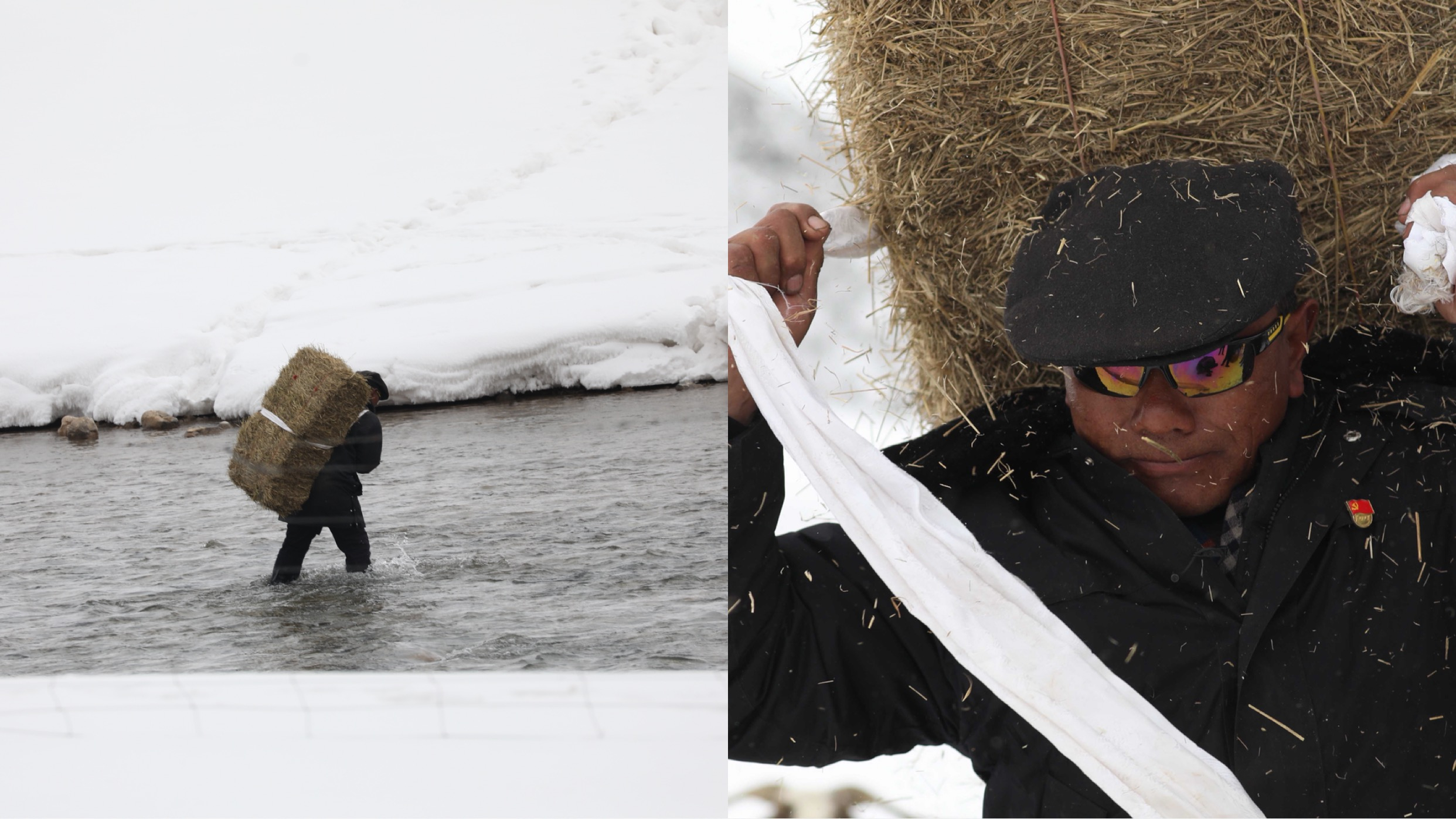
Fifty-three-year-old herdsman Pema crosses a river to leave fodder for animals in the mountains. /CGTN Photo
Fifty-three-year-old herdsman Pema crosses a river to leave fodder for animals in the mountains. /CGTN Photo
But undeniable, extreme weather events such as droughts, floods, fires and typhoons are increasing globally. I've become more sensitive to climate change and global warming since I started working in CGTN Nature's film crew.
I saw plastic waste gathering on the seashore while we were filming seals, water bottles and cigarette butts left behind in Shangri-La forests and Yunnan snub-nosed monkeys threatened by habitat fragmentation. I'm not an environmentalist, but I started to use fewer plastic products, and I'm trying to live a low-carbon lifestyle.
China has implemented many policies and plans focused on conservation in recent years. Filming in the wild during 2019 made me realize that our nature is stunning and fragile at the same time. I hope in the future, our planet can recover and be better with our common efforts.
For more:
CGTN Nature documentary series
Year End Special: The best shots of plants filmed by CGTN Nature
Year End Special: CGTN Nature's best shots of animals in China of the year
Year End Special: Breathtaking National Parks
(Cover image designed by CGTN's Yin Yating)
(If you want to contribute and have specific expertise, please contact us at nature@cgtn.com.)